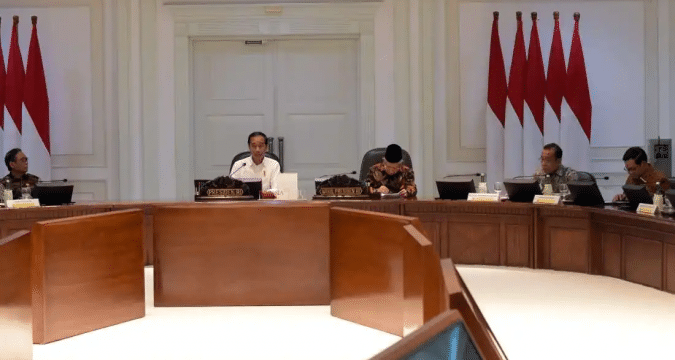
JAKARTA (UCAN): “I do not reject reconciliation, but [it] must go through a legal process as stipulated in the 2000 law that established the Human Rights Court in Indonesia,” Maria Catarina Sumarsih, said on May 5, responding to a statement by Mahfud MD, Political, Legal, and Security Affairs, who said, “there is no apology from the government to the public because of the incident.”
Mahfud made the statement during a meeting on the Recommendation from the Non-Judicial Settlement Team for Serious Human Rights Violations, chaired by the president, Joko Widodo, in Jakarta on May 2.
Sumarsih, whose son Bernardinus Realino Norma Irmawan, was shot dead by soldiers during a riot on 13 November 1998, following the fall of Suharto, the authoritarian Indonesian president, after a 32-year rule, said the government should comply with the provisions of the law that stresses judicial settlement.
The Catholic mother said that the government should carry out the law’s mandate, which says that “gross human rights violations that occurred before the law was passed must be accounted for at the ad hoc human rights court.”
However Mahfud, referring to the purge of communist party sympathisers in 1965 in which 200,000 to 800,000 people were killed, said that the government acknowledges that the incident did occur, and “the government regrets that the incident occurred.”
Without these things, the impact is not only that justice for victims and their families is not fulfilled, but also does not encourage accountability and improve the system to prevent similar human rights violations in the future
Usman Hamid
Fatia Maulidiyanti, coordinator of the Commission for Disappearances and Victims of Violence, said in a statement, “Basically, confessions without an apology and state accountability are only superficial and cannot provide justice for victims.” She stressed that an apology is important because it is a form of symbolic reparation.
The minister said the government arrived at the conclusion following the latest order of the National Human Rights Commission which asked it to carry out a non-judicial settlement of 12 past gross human rights violation cases like the 1998 riot. Around 1,200 people were killed in the capital Jakarta alone during the riots.
Mahfud said we “will not look for the perpetrators in this non-judicial settlement” and the process will start next month.
However, Sumarsih alleged that with this non-judicial settlement, the government is perpetuating impunity. She decried the decision of the National Human Rights Commission, which ignored recommendations of the previous panels that had asked the government to settle past human rights violation cases through judicial mechanisms.
“Guarantees that gross human rights violations will not be repeated in the future can only be given by trying them in court,” she said.
“The accountability of perpetrators is an important part of resolving cases of gross human rights violations,” Usman Hamid, Amnesty International Indonesia’s executive director, said.
“Without these things, the impact is not only that justice for victims and their families is not fulfilled, but also does not encourage accountability and improve the system to prevent similar human rights violations in the future,” he said.










